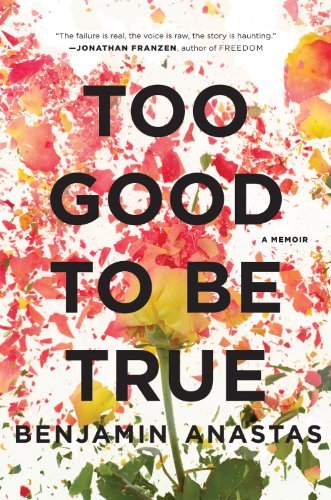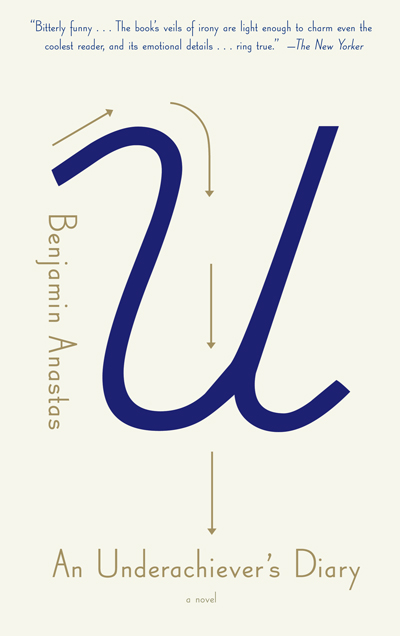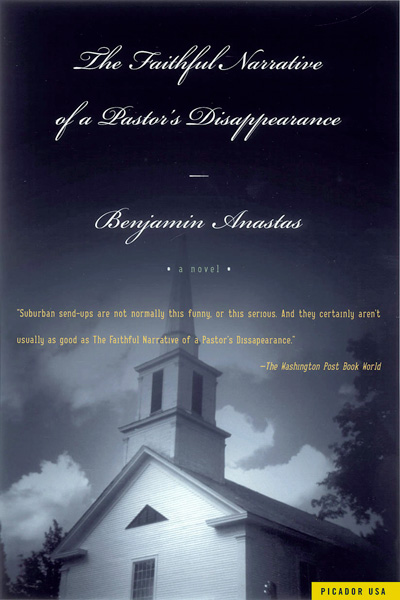I wrote this brief essay recently for Blackfriars, the new digital imprint at Little, Brown U.K. that published Too Good to Be True last month. It tells the story of how I came to write a memoir, a literary form I spent most of my early career ruthlessly mocking, and how the daily process of bringing the memoir to life helped restore my relationship to writing.
There are two kinds of people in the world: memoirists and everyone else. We all have a memoirist in the family, or sleeping in our bed, or working at the next cubicle over with a headset on; they’re the ones who share their lives with an eerie fluency no matter how intimate their disclosures or how many strangers are within earshot. Often they’re lurking in a train compartment nearby, fingering their iPads harmlessly or tapping out a private code on their laptops—until the phone lets out a chime, the air in the train car changes, and the memoirist suddenly starts to write.
“I’ve been thinking about my first margarita all day. I’m obsessed, I really am. Rocks with a rimful of salt …”
“The team doesn’t know Brian. I’m telling you: the team knows nothing about Brian. They know zilch. He’s a chameleon. He’s a hanger-on … That’s the thing about Brian.”
“On Thursday there’s my colonoscopy. My colonoscopy, I said. Can you hear me? I said it’s my—can you hear me? Are you still there?”
“I love you, kitten. I do. Oodles and oodles of noodles. Now pass the phone to Momma.”
Memoir is all around us. There has never been more of it in our daily lives. It doesn’t take an interesting life to qualify, or a literary apprenticeship to get one off the ground. You don’t even need a publisher to share your memoir with an audience, should you be the literary type; you can post it on your blog for next to nothing, tell it episodically to your Twitter followers in 140-character chapters. If you work in one of the more renegade forms of memoir from which none of us can escape—the Cell Phone Rant, the Bodily Function Update, the Decision About What to Make for Dinner—this your golden age.
I’ve always been a reluctant memoirist, especially with a cell phone in my hand, and I never thought I’d actually sit down to write one. Why dwell on myself, after all, spend more time in the skin I’m already living in, when I can get lost in the mystery of other people? When I can plumb the depths of someone else?
In the fall of 2010 I found myself at place in life where I’d never expected to end up. I was 40, still wrecked from a divorce I hadn’t chosen or wanted, the father of a son who I only saw eight days a month. My literary career had been stalled for longer than I cared to admit and felt like it might just sputter out. I was in debt—to friends and members of my family, to credit cards and banks, to the government for back taxes, to hospitals and doctors for medical treatment I needed when I didn’t have insurance—and looking for work wherever I could find it. I’d just moved in with a new girlfriend who I was in love with and we had started to talk about having a family, but my instability was already taking a toll on her trust and I worried that she couldn’t wait for me to find my way back to solvency. I was lost. It was an awful feeling. I lived in a state of more or less constant desperation, and no matter what I tried, I couldn’t catch a break—I couldn’t get a job, or snare a magazine assignment, or convince anyone I’d worked with before to take an interest. It felt like I was just a failure now, and the world had moved on.
In Offenbach’s opera Les Contes d’Hoffman there’s a moment from the third act when Hoffman, a poet, trades away his reflection in the mirror. He’s horrified when he looks into the glass again and doesn’t see himself. That’s what it felt like to lose my way, to wake up at 40 and ask, What happened to my life? I know now that it’s a common affliction. I didn’t then. Not until I published Too Good to Be True. I’ve since read letters and emails and messages on Facebook from people who’ve been through the same, heard stories of sudden changes in fortune that make mine look like a minor setback. The book has led people to share their lives with me, send out excerpts from their own memoirs.
It was memoir, actually, that would lead me out. I started waking up early in the morning—4 or 5AM, before the collection calls started—and sitting on my son’s bed with a notebook and pen on the days he wasn’t with me. Writing an account, in longhand, of exactly where I found myself, no matter how difficult or embarrassing it was to admit it; of where I’d wandered off the more familiar path, and why; of the early memories that still haunted me into adulthood—held an eerie power over my fate, or so I thought. Too Good to Be True, long before it ever became a book, started out as a reckoning, a way of seeing life clearly for what it is, early in the morning, in the same pen and ink I had used when I first started writing. It was a reality project. A way of ordering experience so I could make sense of it. A memoir that brought me back to life.








